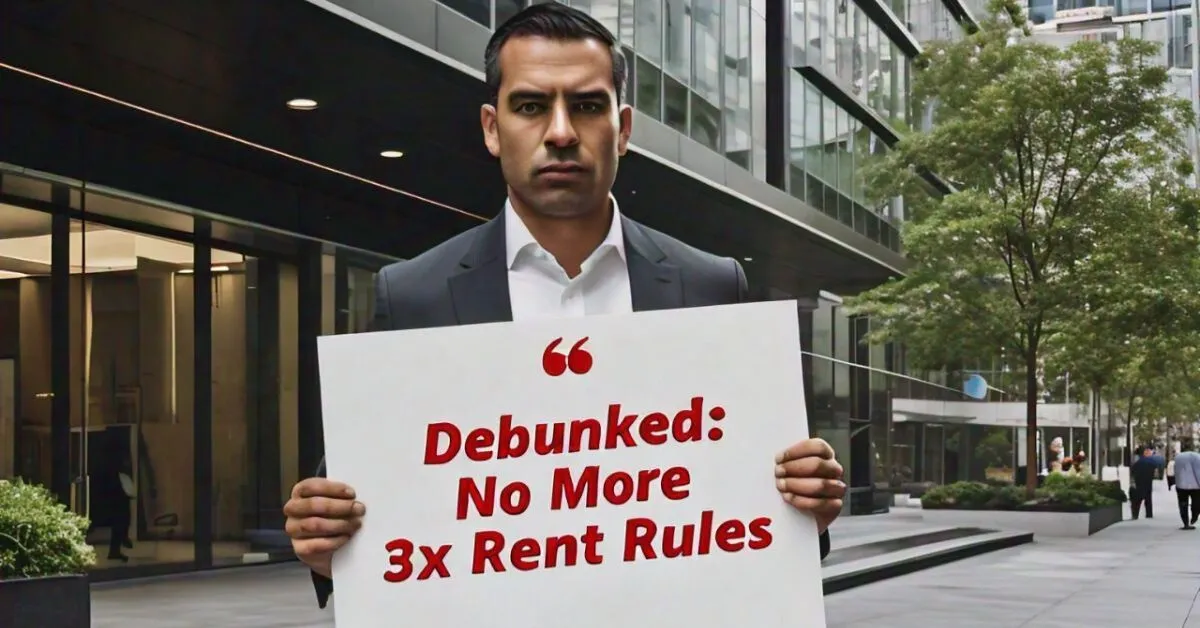Beginning July 1, 2024, a significant shift in rental regulations is set to take place in California that will impact both tenants and landlords. Landlords will no longer be allowed to require tenants to demonstrate that their income is three times the monthly rent. This new law is part of a broader effort to improve housing access, especially for individuals who have struggled to secure rentals due to rigid income requirements. The change is expected to help tenants with non-traditional incomes, such as gig workers, freelancers, and those earning lower wages, find housing more quickly.
This significant change aims to make the rental market more inclusive, opening doors to those previously locked out by the 3x rent rule. This article will explore this new rule, why it was introduced, how landlords will adjust, and what tenants can expect moving forward.
What Was the “3x Rent Rule”?
For many years, landlords have commonly required potential tenants to prove they earned at least three times the rent in monthly income before approving a rental application. This meant, for example, that if the rent was $2,000 per month, the tenant had to show they earned $6,000 monthly.
This policy was designed to ensure tenants could afford their rent comfortably, with enough left over for other expenses like utilities, food, and personal needs. However, this requirement has excluded many individuals who may have had stable but lower or irregular income streams, making it hard to access housing even when they could pay the rent.
Why Is the Income Requirement Being Removed?
The 3x rent rule has been criticized for being outdated and unfair. It disproportionately affected particular groups, including:
- Freelancers and gig workers: People who earn irregular income or have fluctuating monthly earnings.
- Low-income earners: Individuals and families who may not meet the threshold despite having enough resources to pay rent.
- Students and young professionals: Many young people just starting their careers found themselves unable to meet the high-income requirements despite having the means to pay rent.
- Minority communities: Studies have shown that this rule disproportionately impacted minorities, further limiting housing opportunities for these groups.
The goal of eliminating this income threshold is to create a more equitable housing market where more people can qualify for rentals based on their overall financial health, not just their monthly income.
How Will Landlords Adjust to the New Rule?
Landlords must shift away from relying on income verification alone and adopt a more holistic approach to tenant screening. Some key ways landlords will adjust include:
- Credit Score Evaluations: Landlords may emphasize a tenant’s credit score more to assess financial responsibility. A good credit score can indicate that a tenant is reliable with payments and has a history of managing finances well.
- Rental History: Landlords may now evaluate a tenant’s rental history instead of focusing solely on income. This includes checking with previous landlords to ensure the tenant has a track record of paying rent on time and following lease agreements.
- Employment Stability: Even without proving that income is three times the rent, a steady job or stable income source will still be necessary. Landlords may ask for proof of employment to ensure income consistency.
- Security Deposits: While income can no longer dictate the security deposit amount, landlords might still ask for security deposits within legal limits to protect themselves from financial risk. California law caps security deposits at one month’s rent for unfurnished units and two months’ rent for furnished units.
The Benefits for Tenants
Removing the 3x rent rule is expected to significantly benefit renters, particularly those who may have difficulty securing housing due to non-traditional or lower incomes. Some key advantages include:
- Broader Access to Rentals: Without the need to prove a monthly income three times the rent, many individuals and families will have access to housing previously out of reach. This will particularly help people working in the gig economy or those with fluctuating incomes.
- More Comprehensive Financial Evaluations: Landlords will look closer at a tenant’s financial health, including credit scores and rental history. This provides a more accurate representation of a tenant’s ability to pay rent.
- Less Financial Pressure: The stress of meeting high-income requirements will be lifted, allowing tenants to apply for housing with less anxiety about meeting unattainable thresholds.
Challenges Landlords May Face
While this rule change is a positive step for tenants, it does present challenges for landlords. Some potential difficulties include:
- Adapting to New Screening Methods: Landlords may need to spend more time and effort on tenant screening since they won’t be able to rely on income verification as the primary measure of financial security. They may need to get creative in assessing tenants based on credit history, rental references, and other financial documentation.
- Risk Management: Without the income requirement, landlords could face a higher risk of renting to tenants who may not be able to meet their financial obligations. As a result, landlords might need to use more robust security deposit policies or consider renter’s insurance requirements.
- Adjusting Lease Terms: Landlords may need to develop new strategies to balance protecting their property and reducing financial risk while complying with the latest regulations.
What Tenants Should Do to Prepare
Tenants can take proactive steps to strengthen their rental applications in light of the changes in the new rules. Consider the following:
- Maintain a Good Credit Score: Since landlords will look at credit scores more closely, tenants should improve their credit scores if needed. Paying bills on time and reducing debt can help boost credit ratings.
- Prepare Financial Documents: Tenants should be ready to provide additional financial documents, such as bank statements, proof of employment, or references from previous landlords, to demonstrate financial responsibility.
- Check Rental History: Ensuring a positive rental history will be crucial. Tenants can request reference letters from previous landlords that vouch for their reliability and timely payments.
Legal Background and Future Implications
This new regulation is part of a more significant trend in housing reform to address systemic inequalities in the rental market. Similar policies have been introduced in other parts of the country, including New York City and Portland, where income-based rental barriers have been removed or reduced.
The long-term impact of these changes could lead to:
- Increased Diversity in Housing: More renters from diverse backgrounds will have access to housing, creating more inclusive communities.
- Market Stabilization: With more people able to qualify for rentals, the market could see increased occupancy and reduced vacancy rates.
- Support for Economic Mobility: Easier access to housing could enable individuals to move closer to job opportunities or better schools, improving their quality of life.
Conclusion
Removing the three-times-the-rent rule, set to take effect on July 1, 2024, marks a significant shift in the rental market, making housing more accessible to a broader range of individuals. Both landlords and tenants will need to adjust to the new landscape, but the ultimate goal is to create a fairer, more inclusive rental market where financial health is judged more comprehensively than just by income. This change can bring long-term positive effects to the rental market by breaking down barriers and opening up new opportunities for tenants across the state.
FAQs:
Why is the 3x rent rule being removed?
The rule is being eliminated to create a more inclusive housing market and allow individuals with non-traditional or fluctuating incomes greater access to rental properties.
How will landlords screen tenants without the income requirement?
Landlords will assess tenants using a combination of credit score checks, rental history, references, and employment verification to ensure financial responsibility.
Does this law apply only in California?
Yes, this specific regulation is being implemented in California starting July 1, 2024, but similar laws exist in other states and cities.
Can landlords still require security deposits?
Yes, landlords can still ask for security deposits, but they are capped at one month’s rent for unfurnished units and two months’ rent for furnished units.
How can tenants improve their chances of securing a rental under the new rules?
Tenants should focus on maintaining a good credit score, gathering positive references from previous landlords, and being prepared to provide additional financial documentation.

